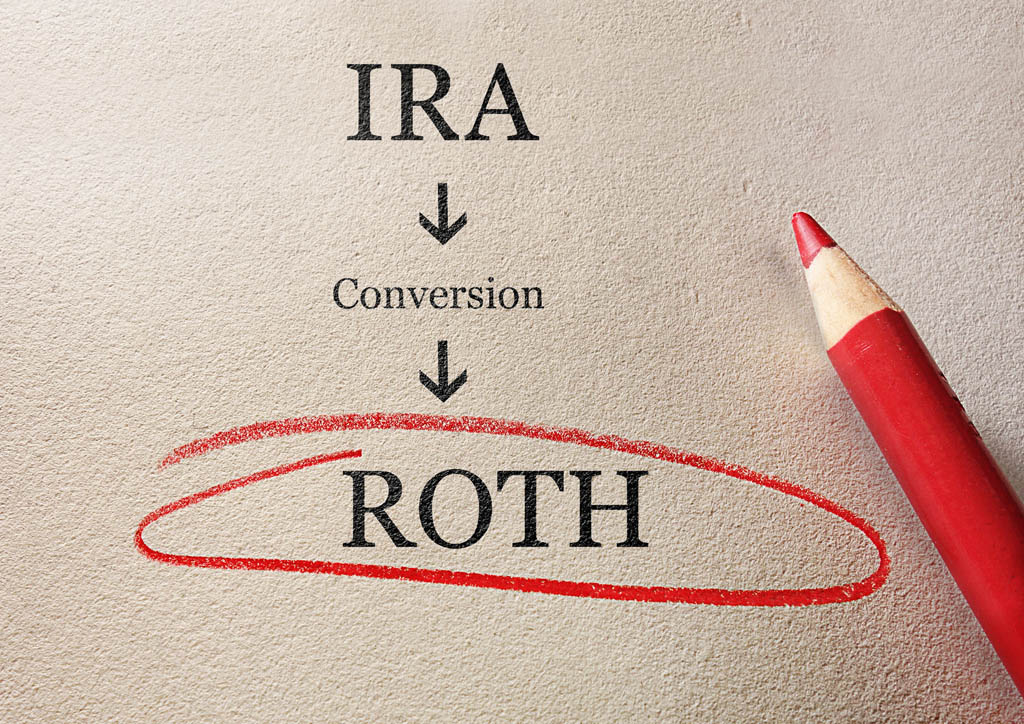Roth IRA Conversions
Retegy Team
May 31, 2019
What are your options? What are the benefits?

If you own an Individual Retirement Account (IRA), perhaps you have heard about Roth IRA conversions. Converting your traditional IRA to a Roth IRA can make a lot of sense depending on your situation. But remember, consulting with your financial advisor before making financial decisions is never a bad idea. Ready to learn more? Read on.
Why go Roth? There is a belief behind every Roth IRA conversion that future income tax rates will be higher. If you are one of the believers, then you may be compelled to convert. After all, once you are age 59½ and have had your Roth IRA open for at least five calendar years, withdrawals of the earnings from your Roth IRA are exempt from federal income taxes. You can withdraw your Roth IRA contributions tax free and penalty free at any time.1,2
As the law is currently written, you never have to make mandatory withdrawals from a Roth IRA, and if your income permits, you can make contributions to a Roth IRA as long as you live.2
Currently, if your filing status is married and your adjusted gross income (AGI) is $193,000 or less you can contribute a maximum of $6,000 to your Roth IRA – $7,000 if you’re age 50 or older. The maximum contribution is also available to single filers with an AGI of $122,000 or less. Depending on how high your AGI is, the amount you are able to contribute may change. Consult with your financial advisor to discuss the latest limitations and potential contributions for your situation.2
Why not go Roth? Two reasons: the tax hit could be substantial, and time may not be on your side.
A Roth IRA conversion is a one-time taxable event. The I.R.S. regards it as a payout from a traditional IRA prior to that money entering a Roth IRA, and the payout represents taxable income. That taxable income stemming from the conversion could send you into a higher income tax bracket in the year when the conversion occurs.2
If you are nearing retirement age, going Roth may not be worth it. If you convert a large traditional IRA to a Roth when you are in your fifties or sixties, it could take a decade (or longer) for the IRA to recapture the dollars lost to taxes on the conversion.
In many respects, the earlier in life you convert a regular IRA to a Roth, the better. Your income should rise as you get older; you will likely finish your career in a higher tax bracket than you were in when you were first employed. Those conditions relate to a key argument for going Roth: it is better to pay taxes on IRA contributions today than on IRA withdrawals tomorrow.
On the other hand, since many retirees have lower income levels than their end salaries, they may retire to a lower tax rate. That is a key argument against Roth conversion.
You could choose to “have it both ways.” As no one can fully predict the future of American taxation, some people contribute to both Roth and traditional IRAs – figuring that they can be at least “half right” regardless of whether taxes increase or decrease.
If you do go Roth, your heirs may receive a tax-free inheritance. Lastly, Roth IRAs can prove to be very useful estate planning tools. If I.R.S. rules are followed, Roth IRA heirs may end up with a tax-free inheritance, paid out either annually or as a lump sum. In contrast, the distributions of inherited assets from a traditional IRA are routinely taxed.3
Citations. 1 – irs.gov/retirement-plans/amount-of-roth-ira-contributions-that-you-can-make-for-2019 [5/14/2019] 2 – irs.gov/retirement-plans/plan-participant-employee/retirement-topics-ira-contribution-limits [5/14/2019] 3 – irs.gov/retirement-plans/plan-participant-employee/retirement-topics-tax-on-early-distributions [5/14/2019]
This material was prepared by MarketingPro, Inc., and does not necessarily represent the views of the presenting party, nor their affiliates. This information has been derived from sources believed to be accurate. Please note – investing involves risk, and past performance is no guarantee of future results. The publisher is not engaged in rendering legal, accounting or other professional services. If assistance is needed, the reader is advised to engage the services of a competent professional. This information should not be construed as investment, tax or legal advice and may not be relied on for the purpose of avoiding any Federal tax penalty. This is neither a solicitation nor recommendation to purchase or sell any investment or insurance product or service, and should not be relied upon as such. All indices are unmanaged and are not illustrative of any particular investment.
Recent updates



Understanding the Ins and Outs of Workplace 401(k) Plans


Similar stories
Latest articles from the "Tax Strategies" category.